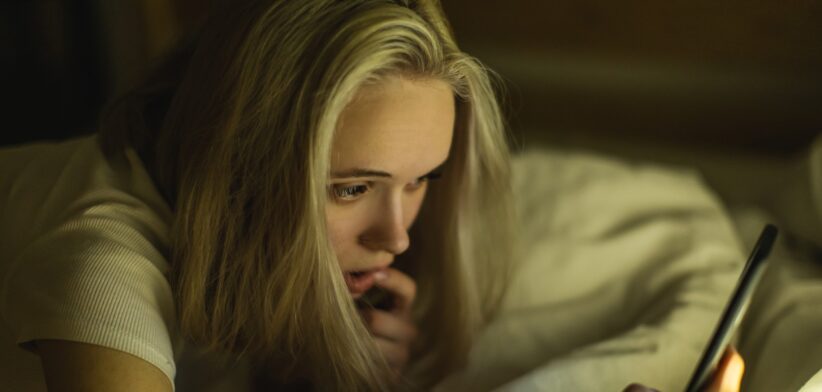New research has cast doubt on the veracity of previous advice on the dangers of pre-sleep screen time.
A study by the University of Otago, released this week, found that screen time in the two hours before bed had little impact on teenage sleep.
Sleeping issues were actually a result of using the phone in bed.
In most countries, sleep guidelines recommend no screen use in the hour or two before bed to promote quality sleep.
Study lead author Bradley Brosnan, of the Edgar Diabetes and Obesity Research Centre, said screentime was part of the bedtime routines for many adolescents and sleep guidelines needed to be revaluated to better reflect contemporary life.
“Our most interesting findings were that this screen time before they got into bed had little impact on sleep that night,” Dr Brosnan said.
“However, screen time once in bed did impair their sleep – it stopped them from going to sleep for about half an hour and reduced the amount of sleep they got that night.”
The study, published in JAMA Pediatrics, involved 85 adolescents aged 11 to 14 years wearing a body camera on their chest from three hours before bed until they got into bed.
The body camera captured screen use while a second infrared camera captured screentime that happened while they were in bed. They also wore an actigraph, a watch-sized device which measures sleep.
“It quickly became obvious that adolescents spend a lot of their screen time while in bed,” Dr Brosnan says.
“99 percent of participants used screens in the two hours before bed, more than half used screens once in bed, and a third used them after first trying to go to sleep for the night.”
The team found that every additional 10 minutes of screen time on interactive screen activities reduced the participants’ sleep time by the same amount.
“Our findings suggest that the impact of screen time on sleep is primarily through time displacement delaying sleep onset rather than any direct effects of blue light or interactive engagement as we didn’t find associations with sleep latency and wakefulness during the sleep period,” Dr Brosnan said.
“We need to revisit sleep guidelines, so they fit the world we live in, and actually make sense – the current ones aren’t achievable or appropriate for how we live.”
Options included allowing some screen time before bed but not in bed, or to not have screens in the bedroom.
The full report is on the University of Otago website.








